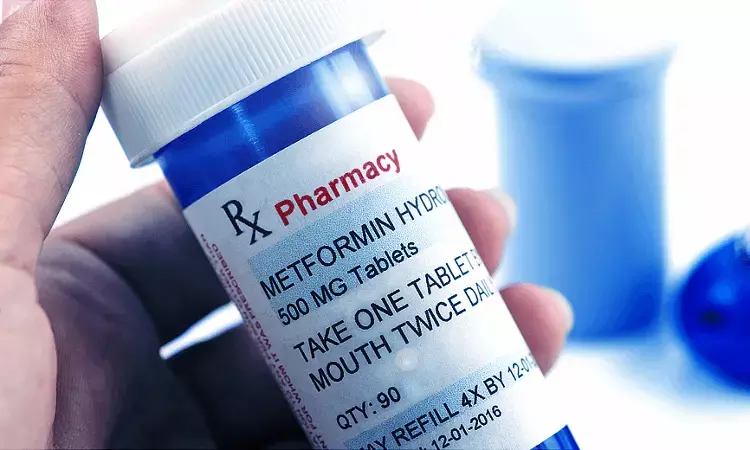- Home
- Medical news & Guidelines
- Anesthesiology
- Cardiology and CTVS
- Critical Care
- Dentistry
- Dermatology
- Diabetes and Endocrinology
- ENT
- Gastroenterology
- Medicine
- Nephrology
- Neurology
- Obstretics-Gynaecology
- Oncology
- Ophthalmology
- Orthopaedics
- Pediatrics-Neonatology
- Psychiatry
- Pulmonology
- Radiology
- Surgery
- Urology
- Laboratory Medicine
- Diet
- Nursing
- Paramedical
- Physiotherapy
- Health news
- Fact Check
- Bone Health Fact Check
- Brain Health Fact Check
- Cancer Related Fact Check
- Child Care Fact Check
- Dental and oral health fact check
- Diabetes and metabolic health fact check
- Diet and Nutrition Fact Check
- Eye and ENT Care Fact Check
- Fitness fact check
- Gut health fact check
- Heart health fact check
- Kidney health fact check
- Medical education fact check
- Men's health fact check
- Respiratory fact check
- Skin and hair care fact check
- Vaccine and Immunization fact check
- Women's health fact check
- AYUSH
- State News
- Andaman and Nicobar Islands
- Andhra Pradesh
- Arunachal Pradesh
- Assam
- Bihar
- Chandigarh
- Chattisgarh
- Dadra and Nagar Haveli
- Daman and Diu
- Delhi
- Goa
- Gujarat
- Haryana
- Himachal Pradesh
- Jammu & Kashmir
- Jharkhand
- Karnataka
- Kerala
- Ladakh
- Lakshadweep
- Madhya Pradesh
- Maharashtra
- Manipur
- Meghalaya
- Mizoram
- Nagaland
- Odisha
- Puducherry
- Punjab
- Rajasthan
- Sikkim
- Tamil Nadu
- Telangana
- Tripura
- Uttar Pradesh
- Uttrakhand
- West Bengal
- Medical Education
- Industry
Metformin may protect against harmful effects of radiation exposure among cancer patients in Preclinical Study

A recent study unveiled a new use for metformin, a drug primarily used to manage Type 2 diabetes. Beyond its well-known anti-glycemic properties, the research discovered that metformin may offer significant radioprotective benefits by potentially reducing the harmful effects of radiation exposure. This finding could have profound implications in fields where radiation exposure is a critical concern, such as cancer treatment and space exploration.
The study was conducted on human BJ fibroblast cells and wild-type 129/sv mice to explore the effects of metformin at both cellular and organismal levels. In vitro experiments revealed that a single administration of metformin at a concentration of 0.5 mM led to improved DNA damage repair in BJ fibroblasts. This was marked by increased expression of Superoxide Dismutase 1 (SOD1) in the nucleus which is a key enzyme involved in protecting cells from oxidative stress. The research team emphasized that these effects are pleiotropic which means that they can vary depending on the concentration and duration of metformin exposure.
The in vivo segment of the study provided even more strong evidence. Mice pre-treated with metformin (200 mg/kg) for just 3 days before exposure to sub-lethal and lethal doses of radiation showed a significant reduction in radiation-induced damage. There was a marked decrease in the formation of micronuclei in bone marrow cells, as well as reduced DNA damage in colon and lung tissues. These findings were consistent across both sub-lethal and lethal radiation exposures, with a 37% increase in the overall survival fraction of mice that underwent total body irradiation at 10Gy when compared to control groups.
Further investigations involved exposing these metformin-pre-treated mice to a galactic cosmic rays simulation (GCRsim) at NASA's Space Radiation Laboratory (NSRL). Once again, the results showed that metformin pre-treatment led to a decrease in the presence of bone marrow micronuclei and reduced DNA damage in colon and lung tissues. Also, the research observed an increase in the expression of 8-oxoguanine DNA glycosylase-1 (OGG1) which is crucial for repairing oxidative DNA damage.
These findings suggest that radioprotective effects of metformin may stem from its ability to indirectly modulate gene expression involved in cellular detoxification, other than directly affecting mitochondrial function. This discovery opens up new avenues for research into the potential applications of metformin beyond diabetes management in areas where radiation exposure is a major risk factor.
Source:
Siteni, S., Barron, S., Luitel, K., & Shay, J. W. (2024). Radioprotective effect of the anti-diabetic drug metformin. In H. Li (Ed.), PLOS ONE (Vol. 19, Issue 7, p. e0307598). Public Library of Science (PLoS). https://doi.org/10.1371/journal.pone.0307598
Neuroscience Masters graduate
Jacinthlyn Sylvia, a Neuroscience Master's graduate from Chennai has worked extensively in deciphering the neurobiology of cognition and motor control in aging. She also has spread-out exposure to Neurosurgery from her Bachelor’s. She is currently involved in active Neuro-Oncology research. She is an upcoming neuroscientist with a fiery passion for writing. Her news cover at Medical Dialogues feature recent discoveries and updates from the healthcare and biomedical research fields. She can be reached at editorial@medicaldialogues.in
Dr Kamal Kant Kohli-MBBS, DTCD- a chest specialist with more than 30 years of practice and a flair for writing clinical articles, Dr Kamal Kant Kohli joined Medical Dialogues as a Chief Editor of Medical News. Besides writing articles, as an editor, he proofreads and verifies all the medical content published on Medical Dialogues including those coming from journals, studies,medical conferences,guidelines etc. Email: drkohli@medicaldialogues.in. Contact no. 011-43720751


